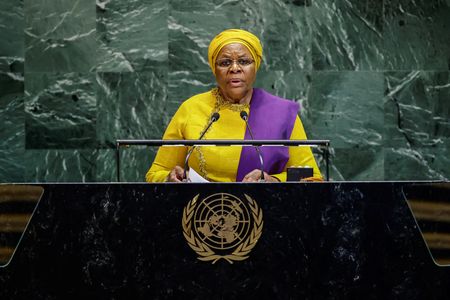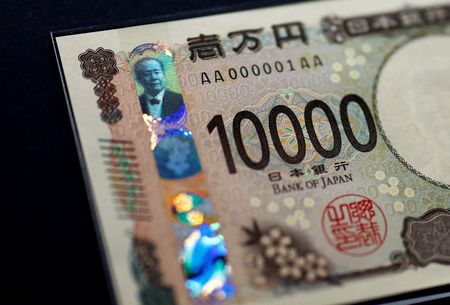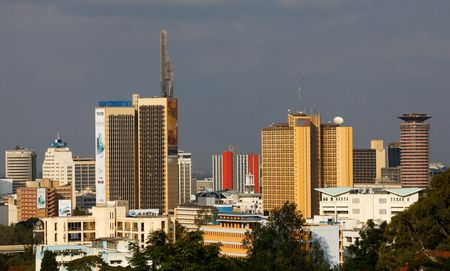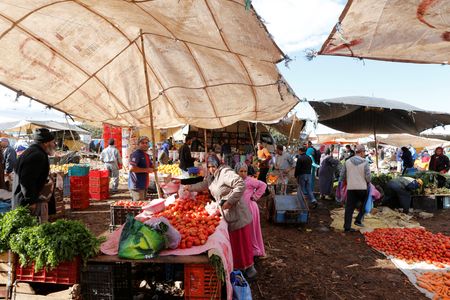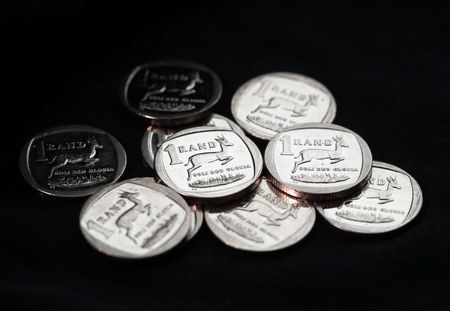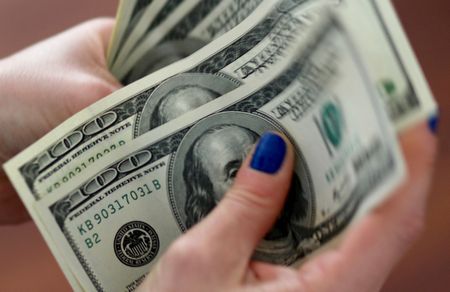By Joe Bavier and Boureima Balima
JOHANNESBURG/NIAMEY (Reuters) – Days after Burkina Faso, Mali and Niger announced last month they were quitting the West Africa political union ECOWAS, Burkina Faso’s military ruler Ibrahim Traore was already naming his next target: the region’s CFA franc currency.
“It’s not just the currency.
Anything that maintains us in slavery, we’ll break those bonds,” the 35-year-old army captain turned coup leader said in an interview, posted on YouTube.
The three countries jointly announced on Jan.
28 they were pulling out of the Economic Community of West African States (ECOWAS) after it pressured them to restore constitutional order following a string of coups.
Having already kicked out French soldiers and rolled back a U.N.
mission in Mali, these states have consistently shown they value sovereignty over expediency.
Their attitude towards the euro-pegged CFA franc appears no different, although economists and experts say dumping the CFA franc would be riskier and significantly more complicated than withdrawing from ECOWAS, a move seen as a bold, if potentially ill-advised, act of defiance.
Last November, the finance ministers of Burkina Faso, Mali and Niger said they would weigh the option of setting up a monetary union and top officials from all three countries have, to varying degrees, voiced support for abandoning the currency.
The head of the Niger junta, Abdourahamane Tiani, said in an interview on state television on Sunday that abandoning the CFA franc would be a sign of sovereignty and a necessary step in moving away from French “colonisation”.
To do so, however, would mean much more than simply printing new banknotes.
A newly created central bank would need to manage a delicate transition away from the CFA franc, formulate monetary policy, and decide what to do about more than $4.6 billion in outstanding CFA-denominated regional bonds.
‘THE FRENCH ROBBED US’
The CFA franc currencies – one West African and another for Central Africa – sit at the heart of an emotional debate over sovereignty and development in French-speaking Africa.
Proponents hail the CFA franc’s peg to the euro as a guarantee of macroeconomic stability in one of the world’s most volatile regions.
Critics denounce it as a brake on growth and an outdated vestige of French colonial rule: until a 2019 reform, countries were required to hold a portion of their foreign reserves with the French Treasury.
But never since its inception in 1945 has there been the prospect of such a mass exodus.
“The French have robbed us with the CFA franc. African countries must definitively break with this currency,” said Omar Issoufou, a 25-year-old Nigerien who is studying electrical engineering in the capital Niamey.
The military takeovers that have swept across the arid Sahel region were driven by anger over Islamist violence, which Mali’s U.N. mission and a sprawling French anti-militant operation had failed to snuff out.
Punishment for the putsches – the imposition of economic sanctions by ECOWAS, including freezing of some of Mali and Niger’s assets held by the regional central bank – fuelled tensions between the new regimes and the West African Economic and Monetary Union, known by its French acronym UEMOA.
“The moment UEMOA became a weapon of war … I can understand why these three countries moved to clearly free themselves from their engagements towards the Union,” Hamma Hamadou, a former head of Niger’s tax authority, told Reuters.
Beyond ideological issues of sovereignty and practical concerns related to sanctions, some view moving away from the CFA franc as an opportunity.
“The CFA franc has been very detrimental to these countries over the long run,” said Ndongo Samba Sylla of International Development Economics Associates, a network of economists focused on the Global South.
“They have lower inflation and extra exchange rate stability, but they’ve suffered from an over-valued currency.”
All three countries have largely agricultural economies. But their inability to set monetary policy has left their exports uncompetitive, he said, and hindered industrial development.
The peg to the euro, meanwhile, makes little sense when the bulk of West Africa’s external trade is done in dollars, he added.
‘GREAT DEPRESSION’
Withdrawing from ECOWAS is already looking easier said than done.
Disentangling their economies and finances from UEMOA will be even more delicate.
UEMOA’s eight members deposit their foreign exchange reserves with the Dakar-based regional central bank.
Those reserves are mutualised as are liabilities, making a determination of how much each country would be able to walk away with a difficult calculation.
Then there’s the question of CFA-denominated debt.
Burkina Faso has over 1.2 trillion CFA francs ($1.99 billion) in outstanding bonds. Mali has slightly over 1 trillion CFA francs, while it’s 498 billion CFA francs for Niger.
“We will enter into a zone of turbulence if these countries pull out,” said one financial expert involved in regional debt issuances, who asked not to be named due to market sensitivity.
There was no clarity, he said, on where the bonds would be listed, whether they would remain in CFA francs or even if the new currency would be convertible.
“There would be a lot of problems for the holders of these sovereign bonds,” he said.
The turmoil would likely leave the three states cut off from future financing from regional and international capital markets, experts said. Burkina Faso already called off a bond auction in the wake of its ECOWAS withdrawal announcement due to a lack of interest.
Uncertainty could provoke capital flight and an immediate depreciation of a new currency. Imports could become prohibitively expensive, fuelling run-away inflation.
“I think you’re taking 10% to 20% off your GDP,” said Charlie Robertson, head of macro strategy at London-based FIM Partners.
“Leaving the single currency is bringing on the Great Depression,” he said, adding it would be the worst policy mistake the countries could make.
In light of these risks, the juntas are approaching the currency question more carefully than their ECOWAS withdrawal.
Two government officials from the countries told Reuters that the committee charged with studying a new monetary union, while still planned, had not yet met.
Prime Minister Choguel Maiga of Mali – the only one of the three to have ever issued its own currency – has urged patience.
When Mali exited UEMOA in 1962 in the wake of independence, its new currency was at parity with the CFA franc, but upon its return to the union in 1984 was worth only half as much.
To ensure lessons have been learned, Maiga says the committee needs time to assess all the implications before the country draws up plans for a new currency with its two neighbours.
“This is what I say to the Malians,” Maiga told business leaders last month.
“Sure, you have this passion. You want it. But this is strategic.”
($1 = 604.0000 CFA francs)
(Reporting by Joe Bavier and Boureima Balima; Additional reporting by Loucoumane Coulibaly in Abidjan, Moussa Aksar in Niamey, Giulia Paravicini in Nairobi and Leigh Thomas in Paris; Editing by Susan Fenton)


